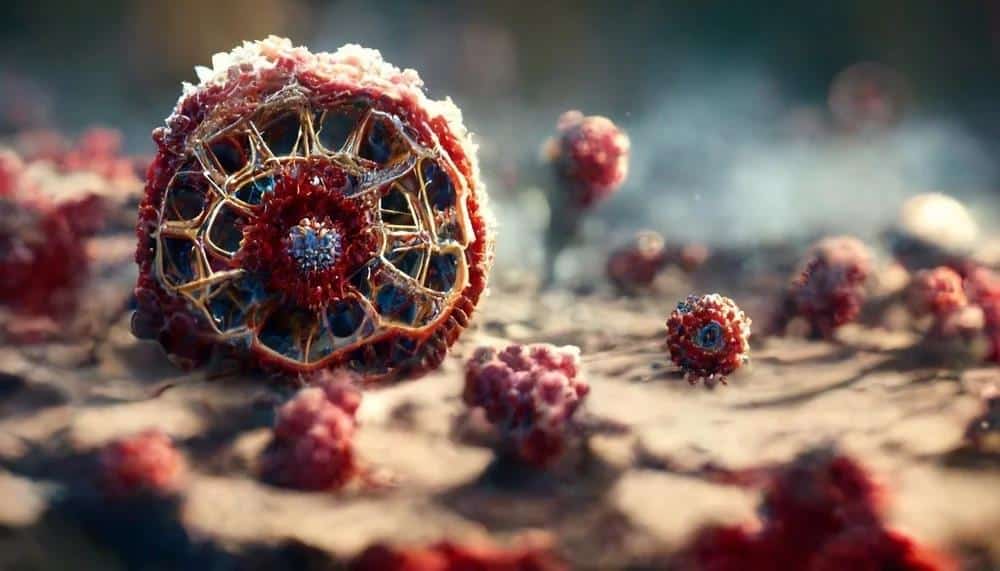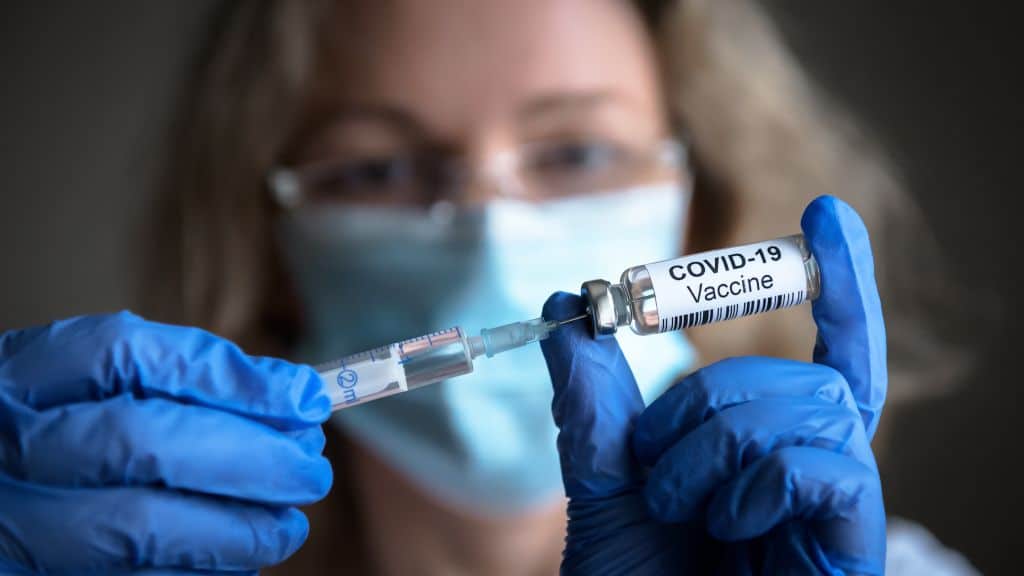Newsletter Signup - Under Article / In Page
"*" indicates required fields
The development of COVID-19 vaccines was an unprecedented achievement at a time of urgent medical need. We explore the novel technology platforms that went into their development and consider their long-term impact on vaccine research.
Ever since the first vaccine against smallpox in the late 1700s, vaccines have gained a reputation as a critical tool in preventing infectious diseases and curtailing their spread.
Many people around the world were hopeful that this track record of vaccines would provide a solution for what was a growing COVID-19 pandemic in early 2020. The subsequent role that vaccines played in combating the pandemic has cemented their status as the ‘first-line of defense’ against infectious diseases.
Conceptually, vaccines defend the body by triggering a manageable immune response by using a weakened or inactive part of a disease-carrying organism (referred to as the antigen) to imitate an infection. The antigen triggers the body’s immune system to produce antibodies, which help fight off subsequent actual infections of the disease.
This allows protection against the disease for a specific period of time – from months to years – depending on the immune system’s memory and the disease in question. Thus, vaccines help in managing infection rates, potentially preventing severe disease.
A race to the finish: tackling the COVID-19 pandemic
In late 2019, many scientific research institutes and vaccine companies worldwide began exploring various technology platforms, as well as detection and evaluation methods, to develop vaccines against COVID-19 after the virus outbreak.
“Due to the urgent medical need driven by the severity of the pandemic, efforts to develop, test, approve and commercialize the vaccines bore results in under a year,” said Pingju Ge, Associate Director of Research and Assay Development at ACROBiosystems, a biotechnology company that specializes in providing biopharmaceutical reagents and supporting services.

In a matter of months following their roll-out, COVID-19 vaccines helped control and manage what was a disease with severe respiratory symptoms, resulting in a significant decrease in deaths and overall disease burden, helping ease city-wide lockdowns.
“This dramatic shift that vaccines had on the COVID-19 landscape is even more wondrous considering the sheer speed in which these vaccines were developed,” marveled Ge. Indeed, before COVID-19, developing a vaccine had traditionally taken at least five to ten years from research to commercialization.
But today – less than three years since the first of the outbreaks were reported – seven COVID-19 vaccines have been authorized by the World Health Organization (WHO) for emergency use towards large-scale vaccination.
Novel vaccine technology platforms: the mRNA vaccine
Along with shortening vaccine development timelines, the search for the COVID-19 vaccine accelerated the use and rapid development of novel vaccine technology platforms.
Where traditionally vaccines have relied on inactivated whole viruses, virus subunits or viral vectors, the COVID-19 vaccine race advanced more innovative platforms such as gene vaccines.
“Gene vaccines rely on the introduction of specific antigen-coding DNA or mRNA sequences into the human body. These genes are then expressed as an antigen, subsequently triggering an immune response in the body to induce immunity,” Ge explained.
“An advantage of this new mRNA vaccine technology platform – used in the Pfizer/BioNTech and the Moderna COVID-19 vaccines – is that it allows newer, variant-specific vaccines to be developed more quickly. Since it also has a short manufacturing cycle, the mRNA platform is suited to combat highly infectious and rapidly mutating viruses.”
While the mRNA vaccine technology may still need to overcome cold chain logistics and the long-term effects remain to be fully evaluated, the developments and outcomes so far have shown promise.
Behind the scenes: the critical steps in a vaccine research and development workflow
Despite the accelerated timelines in which COVID-19 vaccines were developed using novel platforms, the considerations used to evaluate the development process for these vaccines remain largely unchanged from prior to the pandemic.
The vaccine development process is divided into five stages: early pre-clinical research and development, clinical testing, registration, production, and circulation. Each of the stages is subjected to the strictest scrutiny to ensure optimal efficacy, safety, potency and quality by regulatory bodies, such as the U.S. Food and Drug Administration (FDA).
“Establishing appropriate tests and detection methods to evaluate a vaccine’s biological potency – referred to as its immunogenicity – is critical to successfully developing a vaccine,” shared Ge. “Typically, animal models – either already available or established de novo – are used to evaluate the protective effect of the vaccine.
“If an animal model cannot be established, in vitro experiments to verify the effectiveness of the vaccine are required.”
Furthermore, establishing the relationship between vaccine dosage and its immunogenicity is also crucial to optimize the vaccination route and frequency, thus impacting the design of the immunization program.
The breakthrough COVID-19 vaccines underwent the same checks and balances, with antibody detection methods of ELISA and pseudovirus testing being widely used for their efficacy evaluation prior to large-scale manufacturing and use.
Attempting comprehensive protection: next-generation COVID-19 vaccines
With new variants of the SARS-CoV-2 virus detected this past year, the COVID-19 pandemic slowly transitioned into an endemic. As the first wave of vaccines began to be phased out, the COVID-19 disease management strategy, and hence the vaccine development as well as manufacturing approach, have required a similar shift.
This has led to the rise of next-generation COVID-19 vaccines, elaborated Ge: “Currently, bivalent vaccines – targeting more than one strain of the COVID-19 virus such as the original virus and a dominant variant – have been developed as booster shots.”
COVID-19 booster vaccinations are becoming commonplace, protecting at-risk populations such as healthcare professionals, the elderly, children, and others that rely on herd-immunity. But although booster shots offer a certain amount of protection against infection, Ge cautioned that they are not a permanent solution.
“New types of vaccines, targeting multiple virus variants (polyvalent or pan-coronavirus vaccines) or multiple infectious diseases (all-in-one vaccines), are needed to achieve more comprehensive protection”, noted Ge. “Such vaccines are currently in early development and are yet to be approved for human use.”
Continuing targeted development efforts against SARS-CoV-2 variants
As it appears likely that the COVID-19 virus is here to stay, it is critical that development efforts to protect against COVID-19 and future pandemics continue uninterrupted, asserted Ge.
True to their commitment to support scientists and vaccine manufacturers on this front, the ACROBiosystems team has kept a close watch on the emergence of new SARS-CoV-2 variants. This has allowed them to continue developing relevant reagents, including variant-specific antibodies, antigens, and kits, for use in vaccine quality control as well as pre-clinical and clinical trial processes.
Other than the products for SARS-CoV-2, ACROBiosystems also offers a series of core reagents – including antigens, antibodies, detection kits and pseudovirus – for the research and development of vaccines targeting other infectious diseases such as influenza virus, HIV, and varicella-zoster virus.
By providing researchers with not just virus-specific but also variant-specific tools, ACROBiosystems enables them to evaluate the effect of current vaccines on variants, supporting the rapid development of new and effective vaccines.
Describing the type of experiments that ACROBiosystems support, Ge said: “Our variant specific antibodies allow detection of specific antigen content and bioactivity in vaccines. For customers seeking to save time in method development, we also provide detection kits to quantify antigens content in vaccines.
“Many of our products, including the ELISA, cytokine detection, IgA antibody detection and IgG subtype titer detection kits, support the evaluation of vaccine immunogenicity – a key evaluation criteria in pre-clinical and clinical testing.”

The future of infectious diseases: optimized and cost-effective vaccines
The impact of the COVID-19 vaccine race on vaccine research and development is already visible: over 300 next-generation vaccines targeting COVID-19 alone are in pre-clinical or clinical development today – a number unimaginable two years ago!
But, interestingly, the novel vaccine technology platforms that the hunt for the vaccine brought center-stage are likely to have an even more significant and long-term impact.
“The faster manufacturing and scale-up that these platforms enable are expected to improve future pandemic responses and revolutionize response strategies,” she continued. “Another benefit is that these platforms are also likely to bring down the manufacturing costs of vaccines.”
Ge predicted there may also be an impact on orphan diseases – those that are rare, geographically limited and currently lacking cures. However, because of the rarity of such diseases, the market potential of orphan vaccines developed to tackle orphan diseases may not always offset development costs.
According to her, this has traditionally limited funding in the development of therapies, including vaccines, in this space. However, with faster and cheaper vaccine development platforms in the future, orphan vaccines can potentially be developed without having to rely on public funding alone.
This can lead to major successes for global health, remarked Ge. “To enable such a future, at ACROBiosystems, we plan to continuously monitor both COVID-19 variants and other emerging diseases to offer products that help accelerate vaccine development and manufacturing globally,” she concluded.
Here’s how ACROBiosystems, an experienced vaccine reagents manufacturer, can provide you with a suite of core reagents to support your COVID-19 vaccine research and development journey.
Click here to read more on the various types of next-generation COVID-19 vaccines.
Images courtesy of ACROBiosystems and Shutterstock.






